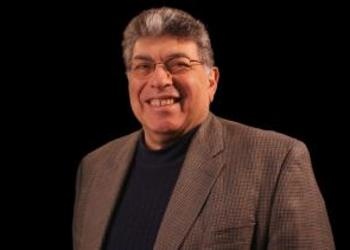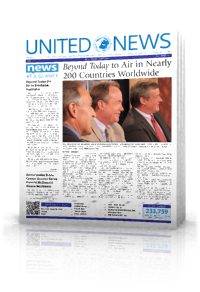My Memoirs of Being a Council Member

“What an honor and a responsibility,” I thought when I was unexpectedly selected by the General Conference of Elders to be on the first permanent Council of Elders beginning in January 1996. I came to the conference from Toronto, Canada, and was selected as one of the international ministers to the Council. I had served as a condo president of our condo board, but that was a very limited duty, and there were not many bylaws to go by.
Most of the 12 who were selected to the Council had not served on a board before, so an expert in non-profit boards, Chris Malburg, was retained to instruct us about how we should function as board members. He was given our governing documents, and with those he prepared a PowerPoint presentation to instruct us. He was very helpful in showing us the responsibilities of the Council and the responsibilities of the administration.
The Council of Elders (CoE) is composed of nine elders from the United States—currently they are: Gary Antion, Scott Ashley, John Elliott, Roy Holladay, Darris McNeely, Melvin Rhodes, Mario Seiglie, Don Ward and Robin Webber—and three international elders (whose primary work is in international areas), who are currently: Robert Berendt, William Bradford and William Eddington. These 12 men are the equivalent of the board of directors. They were selected by the General Conference of Elders.
The CoE selects the officers, who are the president (Dennis Luker), the treasurer (Aaron Dean) and the secretary (Gerald Seelig). The president then selects his operation managers and home office team. Currently the operation managers are Aaron Dean (financial affairs), Victor Kubik (ministerial and member services) and Peter Eddington (media and communications services). The operation managers and some additional home office employees work together in management meetings and share their decisions with the CoE.
According to our documents, the Council (like a board of directors) holds the ultimate responsibility for the organization. They had been selected by their fellow elders to fulfill those responsibilities. I remember Chris telling us that while the council should not “micromanage,” they should “macromanage.” He stressed that the Council and the administration needed to work hand-in-hand to achieve the success that we all desired. However, it was up to the Council to set the policies for the church and to ensure that the administration fulfilled those policies and were faithful in performing their duties.
The first Council spent much time creating basic policies by which the church would be governed. There were many hours spent making sure in all of our minds that what we wrote as policy was acceptable. Prayer was offered to God at each meeting for His guidance in all that we did and accomplished.
When my wife and I returned to Toronto from our first face-to-face meeting in California with the other Council members, we were so excited that everybody was desirous of working together. Input was sought from all, and that input was seemingly appreciated. What a blessing and great feeling that was!
Through those first seven years, we continued to refine policy, prepare strategic plans, approve budgets and generally help steer the church from a board standpoint. When both Council and administration worked together, there was harmony and peace. The work of preaching the gospel and caring for the brethren moved forward effectively.
There were difficulties from time to time, but they were worked through. A major concern arose over the decision by the elders of the church to move from California to Cincinnati. In 1998 this was accomplished. However some departed from the church because they did not agree with this decision. This disruption caused a decline in the membership and finances. Through prudent management and God’s blessing, we navigated those rough waters. We were eventually able to buy property and build our current home office. Today, it is completely paid off!
During my seven plus years of absence from the Council, there were improvements made in preparing strategic planning, handling Council meetings and assigning work to advisory committees that helped the Council to be more effective in doing its job.
The main issue I have observed in both the Council of Elders and the National Council of Canada is that when the Council and administration work together, much can be accomplished. A mutual respect and proper submission to authority adds peace and harmony to the tasks at hand. When the administrative officials are willing to yield to the direction of the Council when there is a disagreement between both bodies, relationships are strengthened, issues are resolved and unity is apparent.
I was selected for the present Council after last May’s General Conference, and once again I consider it an honor and a responsibility. I’m pleased to say that I see 11 others working together to achieve the commission of preaching the gospel and caring for the flock. We discuss issues respectfully with give and take. When one is there for the sake of the church and not for personal interests, the results are blessed and evident.
There is one incident that I’d like to highlight as I bring this article to a close. For our budget this year, Mr. Luker and Mr. Dean put a $1 million faith line in our budget in to order to balance it. This faith line meant that to continue the programs that God was blessing and to keep the momentum that UCG had achieved would require money above what was projected with recent events. Instead of cutting back programs, which was the norm of past administrations, the CoE and GCE approved trusting God to supply the funds to do the work as Mr. Armstrong had done many times in the early years of the modern era of the Church of God.
About six weeks after this GCE approval, even before the new fiscal budget began on July 1, God answered this show of faith so the administration would not even have to prepare potential cuts in the budget. The residual of an estate donation, totalling pennies shy of $777,000, came in. The donor, who died in her late 90s, had a number of other people listed to receive funds, but because of her long life, all of them had died. God indeed knows our need and hears our prayers. What a blessing it is to serve Him.
Make no mistake about the Council. We do not believe that we can do anything of ourselves; it is by the unity of the Spirit (Ephesians 4:3) and thankful, heartfelt prayer (Philippians 4:6) that we may fulfill our responsibilities and service to the church.
We ask for your prayers that we may, with God’s guidance, truly fulfill our roles with honor and responsibility.


